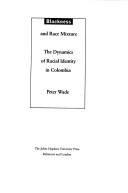The idea of "racial democracy" in Latin American populations has traditionally assumed that class is a more significant factor than race. But, despite the emergence of a "mesitizo" class - people who are culturally and racially mixed in the broadest sense - there remains a complex discrimination against blacks. To explain this phenomenon, Peter Wade focuses on the black population of the Choco province in Colombia - an area where the typical Latin American ambiguity surrounding racial identity is countered by the more definitive "black" identity of the local inhabitants. Drawing on anthropological fieldwork, Wade shows how the concepts of "blackness" and discrimination are deeply embedded in different social levels and contexts - from region to neighborhood, and from politics and economics to housing, marriage, music and personal identity.
By uncovering what "blackness" means to the Chocoanos and how "blackness" is reproduced and transformed in different contexts, Wade brings to the study of race a perspective sophisticated enough to account for the real complexities of "blackness", "mixedness" and "whiteness"; the conflicts among race, ethnicity and national ideologies; the development and transformation of cultural identities; the persistence of racial inequality and racism; and the constitution of society through topography and regionality.
- ISBN10 0801844584
- ISBN13 9780801844584
- Publish Date 1 March 1993
- Publish Status Out of Stock
- Out of Print 9 January 2001
- Publish Country US
- Imprint Johns Hopkins University Press
- Format Hardcover
- Pages 424
- Language English
